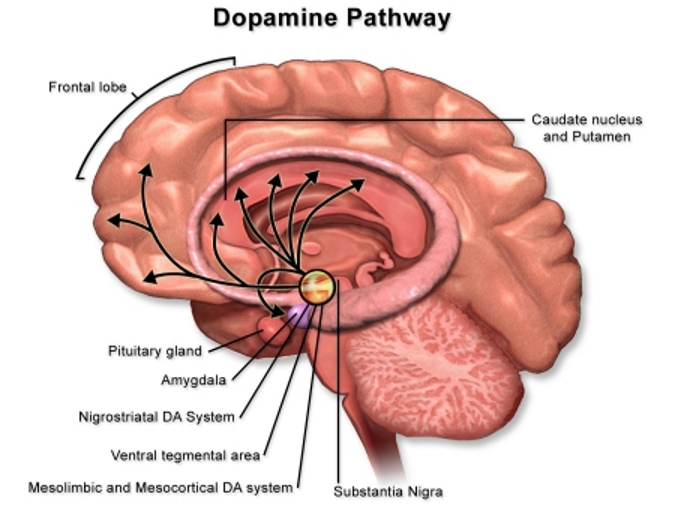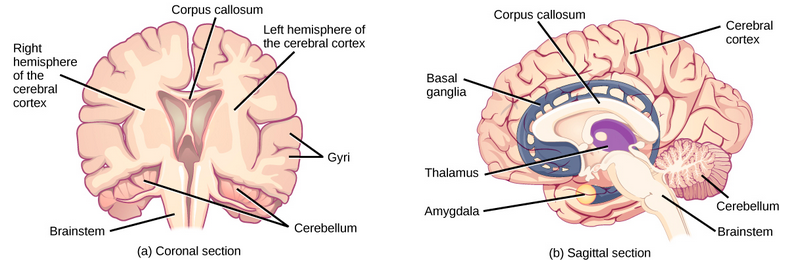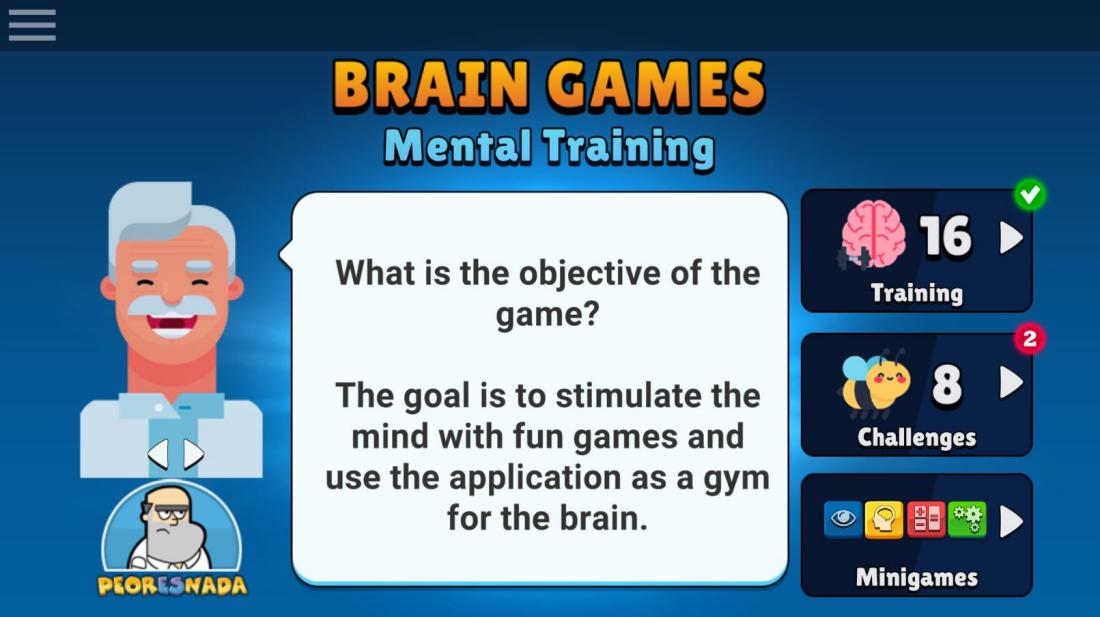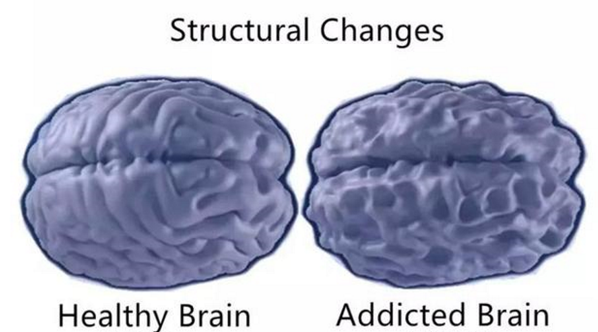1. Introduction
In modern days, many teenagers began to be interested in playing games. There are mainly two ways to play games, one is PC another one is mobile. PC games are much more popular than mobile games aboard. For example, Call of Duty19, Apex, CSGO, PUBG and John of the Wild. These are the greatest action games ever. Most of teenager would like to be playing one of those games [1].
Although previous studies have explored the dangers of e-sports games, the improvement effect of e-sports games on human cognitive function has been confirmed by a large number of studies in recent years. However, there are also more studies that believe that e-sports games cannot improve the cognitive function of the brain, e-sports games only make players have higher cognition for their own games, and their improvement is non-transferable. In the face of skepticism, more researchers have chosen to explain the role of e-sports games at the micro level, mainly in terms of brain structure and function indicators [2]. However, there are still many problems in the research on how e-sports games affect brain plasticity, especially in the impact of e-sports games on brain function. Possible reasons for differences in research are, on the one hand, factors that use different esports games; On the other hand, when measuring the relevant indicators of brain function, the correction standards are different, which may affect the measurement results. Therefore, the measurement results should be treated with caution. Although more research supports that e-sports games can increase the cognitive ability of the human body, and e-sports games have an impact on brain plasticity, this is not an excuse for people to indulge in e-sports games.
Based on the relationship between games and the brain, this paper discusses the effects of games on the brain in detail. The positive effects of games on the brain and the harmful effects of excessive games on the brain are analyzed in detail.
2. The positive effects of games on the brain
Most of us have this kind of experience in our life, when we are feeling good, glad, and happy, we will have much motivations to do things without getting tired of it. When our emotions are bad, the body is non-activated, it could cause the brain to mess up with thinking and focusing. Users just feel like they don’t want to do anything. Gaming can lead to a more positive emotion, and then let us to have a better mind to study [3]. Dopamine in our brain will be released, at the same time we will feel happy and satisfied (Figure 1). If the brain didn’t get any happiness, it could often cause people to feel anxious, scared, and guilty, this will lead to Hippocampus and frontal cortex and preventing memorization and studying.

Figure 1. Dopamine pathway.
2.1. Games are like stimulants for the brain
German researchers invited 23 adults with a mean age of 25 to play Super Mario 64 games for 30 minutes every day for two months while another group did not play any video games at all in order to better understand the psychological impacts of gambling [4]. They identified these two groups of people using an MRI scanner and discovered that those who played the game had enhanced hippocampus function, prefrontal cortex function, and cerebellar function (the above three parts are responsible for human spatial navigation, memory storage, strategic planning, and hands-on ability, respectively, Figure 2). cerebellum and prefrontal cortex (the above three parts are responsible for human spatial navigation, memory storage, strategic planning, and hands-on ability, respectively).
Head of research Simone Kuhn said: "While earlier studies suggested that gamers had unique brain structures, the current study directly links gaming to an increase in brain volume. In other words, games can be used to teach a particular part of the brain." The study was carried out by Kuhn and her associates to treat people suffering from mental illnesses such schizophrenia, post-traumatic stress disorder, and Alzheimer's disease. Research chief Simone Kuhn said: "The latest study discovers a direct link between playing video games and increased brain volume, despite earlier studies suggesting that gamers had different brain structures. That is, playing games can train a particular part of the brain." In order to treat patients with mental diseases such schizophrenia, post-traumatic disorder, and Alzheimer's disease, Kuhn and her associates undertook the study.

Figure 2. Division of labour in the brain.
2.2. Strategy games can make you smarter
The core of human intelligence, according to academics, is said to be strategy games, which British researchers discovered last year can boost players' cerebral plasticity. Before and after playing StarCraft or The Sims for a total of 40 hours over the course of six to eight weeks, participants in the study underwent psychological testing [5]. According to the study, test takers who played Star Craft scored noticeably better on psychological tests and completed flexible cognitive tasks more quickly and accurately. Brian Glass, a researcher, said: "What we need to do now is to understand why these games can bring about such changes, and if these enhancements are temporary or fleeting." Once we fully comprehend it, we may apply it to the treatment of disorders like ADHD and traumatic brain injury. A study conducted last year found that playing 2 hours of puzzle games each week can prevent the mental impairment that comes with age naturally. 681 adults 50 and older who played 10 hours of a specific game that could, in certain cases, halt the deterioration of various talents by up to 7 years were included in the study. Psychology professor Jason Allaire.
2.3. Improve flexibility skills
Contrary to what some people believe, playing video games helps children's brain growth, according to a study from the University of Padua. Italian researchers discovered a year ago that playing quick-witted games helped dyslexic kids' reading abilities. The team split the 7 to 13-year-olds into two groups, and the first group played Rayman Raving Rabids while the second group engaged in a slow-paced activity. Children who played action games fared better and with greater accuracy on later reading exams. The authors of the study claim that action games can help kids focus, which is crucial for developing reading skills (Figure 3).

Figure 3. Puzzle game diagram.
2.4. Games can improve reaction time
Some studies have shown that the game really can improve the response speed of the player. For example, a study published in the journal of the health of young people's study found that players in beating fast moving targets in video game showed a faster reaction rate, which will increase at the end of the game for some time [6]. In addition, a study published in the journal psychology of public policy and law, according to a study by the player in the fight against racing game showed more accurate faster response speed and manual coordination, this could have on driving ability and operation ability in the daily life. Besides, a study published in the journal of the American medical association study found that the elderly play simple video games can improve the attention and response speed, and this may help prevent the decline prevent alzheimer's disease. Although these studies have shown that games can improve response speed, but it is worth noting that the game itself is not a universal solution, reaction speed improvement needs to be combined with other healthy lifestyle, such as a good night's sleep, diet and exercise [7].
3. The negative effects of games on the brain
Video game addiction is an individual result of overusing of online games. Online game addiction is a phenomenon in which an individual overuses online games regardless of negative consequences. Gaming disorder is also included in the International Classification of Diseases (ICD-11), which will be released this year. These changes reflect the great importance and attention of academia and medical professions to this new type of behavioural addiction that has developed rapidly with the Internet age - online game addiction. According to the survey, the incidence of online game addiction is 2%-10%, which varies with the group sampled and the tools used, especially in East Asia (including China, South Korea, etc.), and mainly occurs in the adolescent group [8]. In recent years, online game addiction has also shown new trends such as younger age and mobile game addiction.
3.1. Games affect brain structure
Scientific research in recent years has confirmed that substance addiction is a long-term, chronic brain disease. People are often addicted because addictive substances bring people extremely strong euphoria, and this euphoria is related to the abnormal release and recycling of dopamine in the brain; Long-term consumption of addictive substances will change the secretion of dopamine and related systems in the brain, eventually leading to changes in the structure and function of the brain (Figure 4).

Figure 4. Games cause structural changes in the brain.
3.2. Games can cause disease
Both online game addicts and online game entertainers have a small world that is both efficient and economical. Through the properties of contrast between groups, the brain regions that differed between the two groups were mainly concentrated in the amygdala, middle temporal gyrus and anterior central gyrus [9]. Compared with the online game entertainment group, the online game addiction group had abnormal functions such as mood, craving, and perception. However, there were no statistically significant differences between the two groups in network topology properties, including clustering coefficients, feature path lengths, and small-world ratios.
In general, playing games in moderation may not cause adverse harm. But, from a medical perspective, the harm of excessive gaming to the brain includes cerebral vasospasm, schizophrenia, brain dysplasia, etc. The specific analysis is as follows:
Cerebral vasospasm: Excessive gaming may cause high tension in the brain, and if it is too long, it may also lead to excessive brain fatigue, which may lead to cerebral vasospasm, usually manifested as aphasia, headache, vomiting, etc.
Schizophrenia: Excessive gaming may cause patients to substitute into the game on their own, and then prone to hallucinations, delusions, irritability, violent tendencies, and other symptoms of schizophrenia [10].
Brain dysplasia: If children play games excessively for a long time, it may lead to unbalanced blood supply to the brain area, which in turn affects their intellectual development, resulting in memory loss, inattention and other adverse symptoms.
4. Conclusion
Games can have both positive and negative effects on the brain, depending on the type of game, the amount of time spent playing it, and the user's habits. This article analyzes the effects of gaming on the brain. On the one hand, the positive effects of the brain are analyzed and discussed from four aspects: games make the brain excited, become smarter, improve agility skills, and improve observation. On the other hand, it summarizes the negative effects of excessive gaming on the brain, including changes in brain structure, mental malaise, and poor brain development. The relevant research results have certain reference value
References
[1]. Jiang Q. Brain Response Characteristics of first and second rewards in online game addicts. Zhejiang Nor. Univ., 2022.000133.
[2]. Susan Greenfield. "Mind Shifts: How Social Networks, Games, and Search Engines Affect Brain Cognition". Urban Party Newspaper Res.,2022,117(02):95-96.
[3]. Liyi. Based on the action class the brain working load of the real-time strategy game research. Univ. Elec. Sci. Tech., 2021. 003908.
[4]. Zhao Zhen, Jiang Qing, Dong Guangheng. Abnormal cortical volume in online game addicts: The mediating effect of online game addiction degree on the relationship between loneliness and cerebral cortex volume, Chinese Psychological Society., 2019:2
[5]. Wang Ziliang, Dong Guangheng. Study on abnormal cortical thickness of online game Addicts: A comparison with online game entertainment users, Chinese Psychological Society. 2017:2.
[6]. Qiu Xianxin, Han Xu, Wang Yao et al. Changes in the rich club Structure of brain function network in people with online gaming disorder. Chinese J. Spectro.,202,39(03):258-266.
[7]. Li Hui, Wang Lingxiao, Du Xiaoxia, et al. A comparative study of Brain Functional Networks between online game addicts and Online game Entertainment users. Chinese Psychological Society.,2017:3.
[8]. Wei P, Gao X, Shi S , et al. Spontaneous Brain Activity Did Not Show the Effect of Violent Video Games on Aggression: A Resting-State fMRI Study. Front Psychol, 2018, 8:2219.
[9]. Erfani M, El-Nasr M S, Milam D, et al. The Effect of Age, Gender, and Previous Gaming Experience on Game Play Performance. Chinese J. Spectro, 2010.
[10]. Adeyemi B A, Ajibade Y A . The Comparative Effects of Simulation Games and Brainstorming Instructional Strategies on Junior Secondary School Students' Achievement in Social Studies in Nigeria. African Research Review, 2011, 5(3).
Cite this article
Li,J. (2023). Research on the effects of gaming on the brain. Theoretical and Natural Science,6,247-251.
Data availability
The datasets used and/or analyzed during the current study will be available from the authors upon reasonable request.
Disclaimer/Publisher's Note
The statements, opinions and data contained in all publications are solely those of the individual author(s) and contributor(s) and not of EWA Publishing and/or the editor(s). EWA Publishing and/or the editor(s) disclaim responsibility for any injury to people or property resulting from any ideas, methods, instructions or products referred to in the content.
About volume
Volume title: Proceedings of the International Conference on Modern Medicine and Global Health (ICMMGH 2023)
© 2024 by the author(s). Licensee EWA Publishing, Oxford, UK. This article is an open access article distributed under the terms and
conditions of the Creative Commons Attribution (CC BY) license. Authors who
publish this series agree to the following terms:
1. Authors retain copyright and grant the series right of first publication with the work simultaneously licensed under a Creative Commons
Attribution License that allows others to share the work with an acknowledgment of the work's authorship and initial publication in this
series.
2. Authors are able to enter into separate, additional contractual arrangements for the non-exclusive distribution of the series's published
version of the work (e.g., post it to an institutional repository or publish it in a book), with an acknowledgment of its initial
publication in this series.
3. Authors are permitted and encouraged to post their work online (e.g., in institutional repositories or on their website) prior to and
during the submission process, as it can lead to productive exchanges, as well as earlier and greater citation of published work (See
Open access policy for details).
References
[1]. Jiang Q. Brain Response Characteristics of first and second rewards in online game addicts. Zhejiang Nor. Univ., 2022.000133.
[2]. Susan Greenfield. "Mind Shifts: How Social Networks, Games, and Search Engines Affect Brain Cognition". Urban Party Newspaper Res.,2022,117(02):95-96.
[3]. Liyi. Based on the action class the brain working load of the real-time strategy game research. Univ. Elec. Sci. Tech., 2021. 003908.
[4]. Zhao Zhen, Jiang Qing, Dong Guangheng. Abnormal cortical volume in online game addicts: The mediating effect of online game addiction degree on the relationship between loneliness and cerebral cortex volume, Chinese Psychological Society., 2019:2
[5]. Wang Ziliang, Dong Guangheng. Study on abnormal cortical thickness of online game Addicts: A comparison with online game entertainment users, Chinese Psychological Society. 2017:2.
[6]. Qiu Xianxin, Han Xu, Wang Yao et al. Changes in the rich club Structure of brain function network in people with online gaming disorder. Chinese J. Spectro.,202,39(03):258-266.
[7]. Li Hui, Wang Lingxiao, Du Xiaoxia, et al. A comparative study of Brain Functional Networks between online game addicts and Online game Entertainment users. Chinese Psychological Society.,2017:3.
[8]. Wei P, Gao X, Shi S , et al. Spontaneous Brain Activity Did Not Show the Effect of Violent Video Games on Aggression: A Resting-State fMRI Study. Front Psychol, 2018, 8:2219.
[9]. Erfani M, El-Nasr M S, Milam D, et al. The Effect of Age, Gender, and Previous Gaming Experience on Game Play Performance. Chinese J. Spectro, 2010.
[10]. Adeyemi B A, Ajibade Y A . The Comparative Effects of Simulation Games and Brainstorming Instructional Strategies on Junior Secondary School Students' Achievement in Social Studies in Nigeria. African Research Review, 2011, 5(3).









